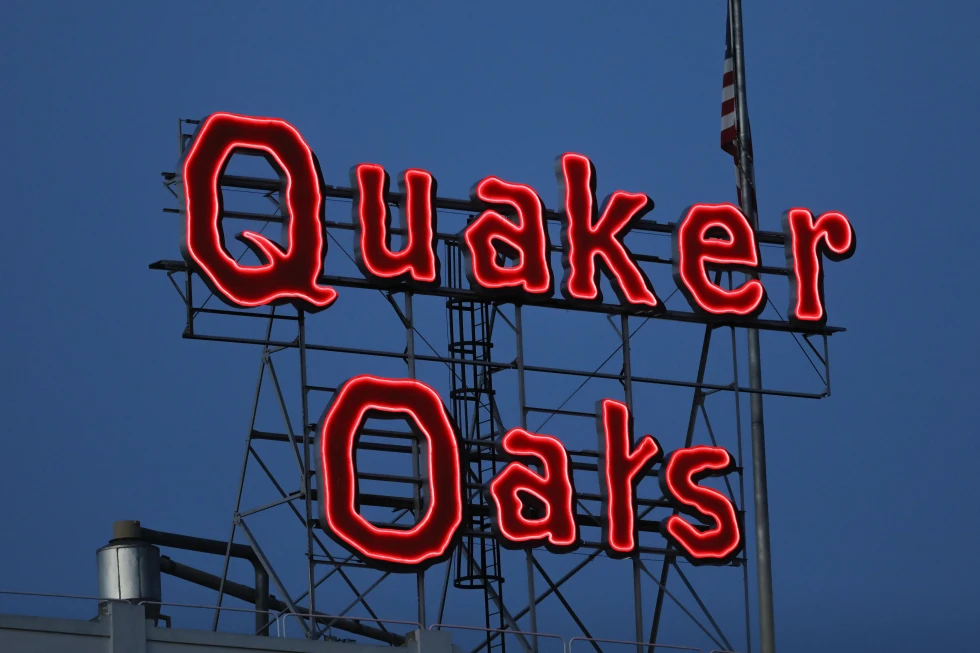The recent announcement by The Quaker Oats Company regarding the addition of two dozen more types of granola bars, cereals, and snack foods to a December recall due to possible salmonella contamination has raised concerns among consumers in the U.S. and Canada.
The company, a subsidiary of PepsiCo., made the decision to expand the recall in an effort to ensure the safety and well-being of its customers.
The expanded recall encompasses a wide range of products, including Quaker Chewy Granola Bars and Cereals, Cap’n Crunch Bars and select cereals, Gamesa Marias Cereal, Gatorade Peanut Butter Chocolate Protein Bars, Munchies Munch Mix, and snack boxes containing these items.
This comprehensive recall demonstrates the company’s commitment to addressing the potential health risks associated with salmonella contamination and underscores the importance of consumer safety.
Salmonella is a bacterium that can cause serious illness, particularly in vulnerable populations such as children, the elderly, and individuals with weakened immune systems.
Symptoms of salmonella infection include diarrhea, fever, and abdominal cramps, and in severe cases, it can lead to hospitalization and even death.
As such, the presence of salmonella in food products poses a significant public health concern and necessitates swift and decisive action to mitigate the risk of exposure.
In response to the expanded recall, The Quaker Oats Company has taken proactive measures to remove the affected products from store shelves and has urged consumers to refrain from consuming these items.
Furthermore, the company has advised individuals who have purchased the recalled products to return them to the place of purchase for a full refund.
These steps are essential in preventing potential exposure to salmonella and safeguarding the health of consumers.
The announcement of the expanded recall serves as a reminder of the importance of stringent quality control measures in the food industry.
Companies must prioritize the safety and well-being of their customers by implementing rigorous testing and inspection protocols to detect and address potential contaminants.
Additionally, transparent communication with the public regarding product recalls is crucial in building and maintaining trust with consumers.
In light of the recent developments, it is imperative for consumers to remain vigilant and informed about food recalls and to heed the guidance provided by the relevant authorities and companies.
By staying informed and adhering to recall notices, individuals can protect themselves and their families from potential health risks associated with contaminated food products.

Moving forward, it is incumbent upon The Quaker Oats Company and other food manufacturers to redouble their efforts to ensure the safety and quality of their products.
This includes enhancing monitoring and testing procedures, implementing robust sanitation practices, and fostering a culture of accountability and responsibility throughout the production and distribution process.
In conclusion, the expanded recall issued by The Quaker Oats Company underscores the critical importance of prioritizing consumer safety and taking swift action to address potential health risks.
By adhering to recall notices and exercising caution when purchasing and consuming food products, consumers can play a proactive role in safeguarding their health and well-being.
It is incumbent upon food manufacturers to uphold the highest standards of quality and safety to earn and maintain the trust of their customers.
As the situation unfolds, continued vigilance and collaboration between industry stakeholders and consumers will be essential in mitigating the impact of potential foodborne illnesses.
The recent reports of adverse events related to recalled food products have raised concerns about the safety and quality of the food supply in the United States.
The U.S. Food and Drug Administration (FDA) has confirmed that it has received at least 24 reports of adverse events associated with the recalled products.
However, the agency has clarified that no illnesses have been definitively linked to the consumption of these foods as of yet.
An FDA spokesperson emphasized that adverse events can encompass a range of issues, including medical problems, as well as complaints about the taste, color, or packaging of a product.
The FDA has underscored its commitment to thoroughly investigating these reports to ensure the safety and integrity of the food supply.
This ongoing investigation is crucial for identifying any potential hazards and taking appropriate measures to mitigate risks to public health.
The agency’s vigilance in addressing these concerns reflects its dedication to safeguarding the well-being of consumers and maintaining the highest standards of food safety.
The specific mention of Salmonella infections in the context of these events highlights the potential health risks associated with bacterial contamination in food products.
Salmonella infections can lead to a range of symptoms, including fever, diarrhea, nausea, vomiting, and stomach pain. In severe cases, these infections can even prove to be fatal.
This underscores the importance of swift and effective action to prevent the spread of foodborne illnesses and protect the public from potential harm.
The FDA’s role in monitoring and responding to reports of adverse events related to food products is a critical aspect of its regulatory responsibilities.
By promptly addressing any potential issues and conducting thorough investigations, the agency plays a vital role in upholding the safety and quality of the nation’s food supply.
This proactive approach serves to instill confidence in consumers and industry stakeholders alike, reinforcing the integrity of the regulatory framework governing food safety.
In conclusion, the recent reports of adverse events related to recalled food products underscore the importance of robust oversight and vigilance in ensuring the safety and quality of the food supply.
The FDA’s commitment to investigating these reports and addressing any potential risks reflects its dedication to protecting public health.
By remaining diligent in its regulatory efforts, the agency plays a crucial role in upholding the highest standards of food safety and safeguarding the well-being of consumers across the United States.
In light of the potential health risks associated with bacterial contamination, it is imperative that swift and decisive action be taken to mitigate these risks and prevent the spread of foodborne illnesses.
The FDA’s ongoing investigation and commitment to transparency and accountability are essential in this regard, as they serve to reinforce consumer confidence and uphold the integrity of the food supply chain.
In conclusion, the FDA’s response to the reports of adverse events related to recalled food products underscores the agency’s unwavering commitment to public health and safety.
By diligently investigating these reports and taking appropriate measures to address any potential risks, the FDA plays a pivotal role in upholding the highest standards of food safety and ensuring the well-being of consumers.
Salmonella infections are a serious concern for public health, as they can cause a range of unpleasant and potentially life-threatening symptoms.
From fever and diarrhea to nausea, vomiting, and stomach pain, the impact of these bacterial infections can be significant.
In rare cases, Salmonella infections can even be fatal, making it crucial for consumers to be vigilant about the products they purchase and consume.
In light of the potential risks associated with Salmonella contamination, it is imperative for consumers to take proactive measures to protect themselves and their families.
One such measure is to regularly check their pantries for any products that have been identified as potentially contaminated with Salmonella.
If any such products are found, they should be promptly discarded to prevent any potential exposure to the harmful bacteria.
Furthermore, it is important for consumers to stay informed about product recalls and take appropriate action in response to them.
In the event of a recall, it is essential to follow the instructions provided by the company issuing the recall. This may include visiting the company’s recall website to access additional information and details on reimbursement for the affected products.

It is worth noting that the responsibility for disseminating accurate and timely information about health and safety issues lies with reputable news sources and health organizations.
In the case of the information provided in this article, it is important to recognize that the Associated Press Health and Science Department receives support from the Howard Hughes Medical Institute’s Science and Educational Media Group.
However, it is emphasized that the AP is solely responsible for all content, highlighting the commitment to upholding journalistic integrity and accuracy in reporting.
In conclusion, Salmonella infections pose a significant risk to public health, and consumers must take proactive steps to protect themselves from potential exposure.
By staying informed about product recalls and promptly disposing of any affected items, individuals can help mitigate the spread of Salmonella and reduce the risk of illness.
Additionally, it is essential for news sources and health organizations to continue providing reliable and trustworthy information to the public, ensuring that individuals are well-informed and equipped to make informed decisions about their health and safety.
